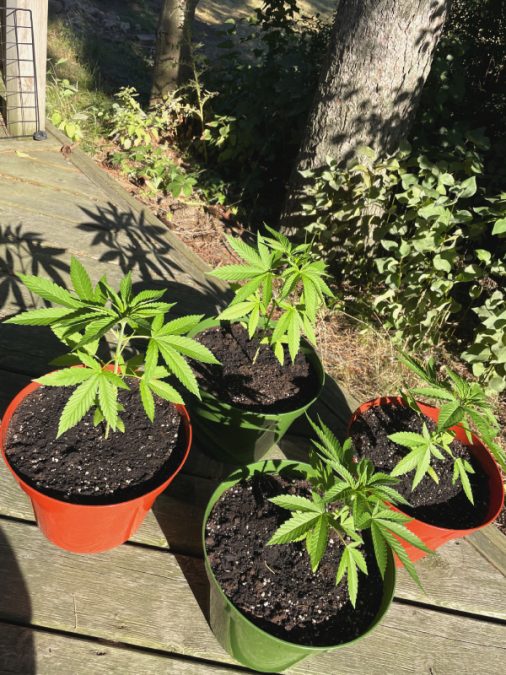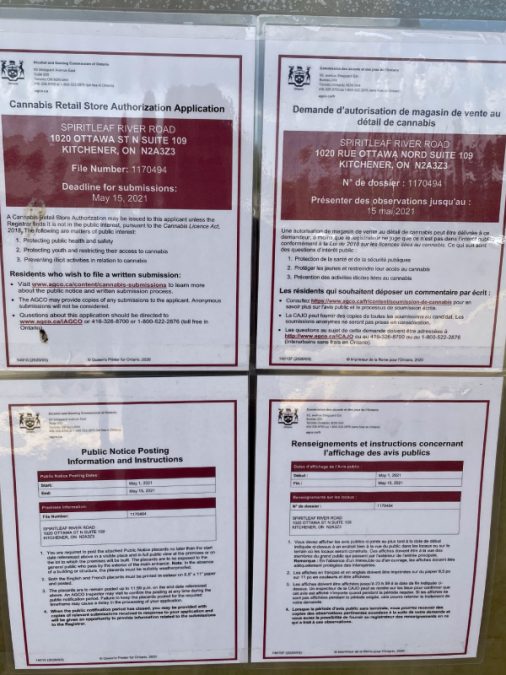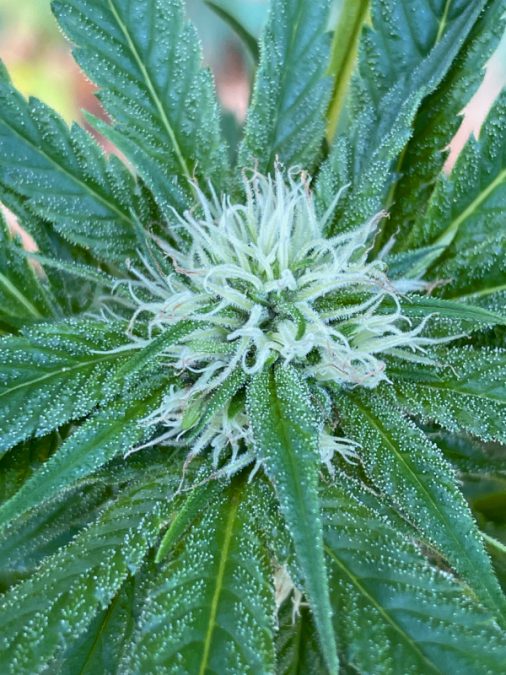A conversation about cannabis, six years since legalization
Cannabis regulations differ significantly between provinces. For example, Ontario allows individuals who are 19 and older to purchase and consume cannabis products, while Québec set the minimum consumption age at 21. In Québec, individuals cannot grow cannabis plants at home, while Ontario allows growing four plants per household.

Ontario has both a crown corporation, the Ontario Cannabis Store (OCS), and private retailers with authorized licensing to supply consumers in the province. Québec, however, only allows the sale of cannabis consumables through their dedicated Société québécoise du cannabis (SQDC) stores.
Private cannabis retailers and consumers have faced continued stigma surrounding the plant and its legal use within Prescott-Russell since legalization.
The Canadian Cannabis Survey (CCS) 2023 reported that the social acceptability for regular use of cannabis—daily or almost daily—had increased from the previous editions, with 58 per cent of respondents stating that eating or drinking cannabis is acceptable, 55 per cent for vaping cannabis, and 54 per cent for smoking cannabis. In 2018, these numbers were initially 44 per cent for eating or drinking, 44 per cent for vaping cannabis, and 45 per cent for smoking cannabis.
The CCS figures show that there is still a stigma present with consuming cannabis, but the positive yearly trend is encouraging. Occasional use of cannabis through the above means scored even higher on social acceptability, especially when dealing with medical use.
Individuals who participated in the CCS also tended to use cannabis to alleviate poorer mental health levels, presenting a more apparent correlation between their mental well-being and cannabis use. In the 2023 CCS, those who used cannabis and had self-reported poor mental health totalled 47 per cent of surveyors. Individuals with fair mental health were reported at 42 per cent, good at 29, very good at 22, and excellent at 15 per cent.
In a local context, the Eastern Ontario Health Unit (EOHU) reported in a 2023 survey that 29 per cent of surveyed Prescott-Russell, Stormont-Dundas-Glengarry, and Cornwall residents have claimed to have felt worthless, 32 per cent hopeless, and 30 per cent depressed at least once or twice in the past month. Hawkesbury, in particular, had lower numbers at 27 per cent having felt worthless, 26 per cent hopeless, and 30 per cent depressed.
In 2022, 13 per cent of surveyed Hawkesbury residents also stated that they were not at all comfortable sharing their mental health needs with a friend or family member. This can lead to individuals attempting to deal with mental health issues on their own or resorting to self-medication through substances like cannabis.
Hawkesbury, Vankleek Hill, and Alexandria
Hawkesbury has a population of 10,194, and of those residents, about 84 per cent of the population, those 19 and older, can purchase and consume cannabis under current laws. There are currently six licensed cannabis retail locations in the town.
Statistics Canada’s 2021 Census divided individuals into five-year age groups; therefore, the youngest group to fully be of legal age to purchase and consume cannabis was labelled as 20-24 years of age. By adding the age groups including and above this level, statistics showed that having six retailers for 8,545 residents, not all being consumers of cannabis products, came to one store per 1,424 people. Understandably, questions arose about why there were so many cannabis retailers in the area, given the relatively small purchasing population.
The Review contacted all legal cannabis retailers in Hawkesbury to gather retailers’ perspectives on cannabis regulation, production, and consumption practices.
None of the retailers who responded to media requests were willing to be interviewed or named in the story.
However, two cannabis retailers in other towns provided information.
“There’s always going to be that crowd that doesn’t accept cannabis, but as part of the licensing process, you have to do the two-week comment period. There were no comments submitted for our application,” Said Brad Ingram, owner of Ingram and Sons Cannabis in Vankleek Hill.

The Alcohol and Gaming Commission of Ontario (AGCO) continually conducts inspection activities, enforcement, and education to ensure products, retailers, and consumers are knowledgeable and use the drug within the confines of the law. In 2022-2023 alone, the AGCO conducted more than 3,256 retail inspections across the province, finding 806 violations. In Prescott-Russell, the number of infractions has steadily risen from two infractions cited from 30 inspections in 2022, six infractions from 44 inspections in 2023, and six infractions from 36 inspections in 2024 so far.
The AGCO stated that in all cases, “Inspectors worked with the licensees to educate them on their obligations and on how to stay compliant with their obligations.” AGCO inspections often included responding to police reports, conducting unannounced inspections, and mystery shopper visits.
The AGCO regulates and enforces provincial cannabis laws and reported that there were no notices or submissions from the public against the proposed cannabis retailers in Hawkesbury. By law, cannabis retailers who wish to open a storefront must post a public notice at the location for 15 days, during which residents may raise concerns and highlight issues that could impact public interests. The AGCO Registrar must refuse to authorize the store in question if it is in the public interest to do so, including for public health and safety, protecting youth while restricting access, and preventing illegal cannabis-related activities.
Ingram said he knew he was entering a controversial industry. He provided that one of the reasons their store looks the way it does was out of respect for the community, as individuals in Vankleek Hill are very proud of its heritage buildings.
“We wanted to enhance that, not just opening another store with frosting all over the windows and calling it a day. We respect the community. We want to be part of the community. We work here. We employ people here,” he remarked.
Ingram suggested that there is not really a defined demographic of cannabis users.
He further encouraged those with negative perceptions of cannabis users to consider and “realize that they can be the receptionist at your doctor’s office” and that the negative perceptions are not warranted in the way they are continuing to linger in society.
Jarred Brown from Alexandria’s Joint in Alexandria suggested that the public should look to other controlled substances like alcohol to see how the stigma surrounding its use changed over hundreds of years.
“You look at how long it took them to evolve from bootleggers selling liquor out of a cart on the street to the Seagram’s of the world. It was a long transition,” Brown said.
“My point-of-view is that this needs to be talked and written about. People who still have that negative stigma, without hearing about it and knowing what’s going on in the industry, will have a harder time breaking down those barriers. I think this is a necessary step for the evolution of the industry,” Brown concluded.
Ingram also suggested that people need to become more comfortable with cannabis products and use.
“The biggest thing is that when someone goes into a store, talk to the budtender and tell them what you’re wanting. We’re curators; it’s a relationship between the customer and the budtender. We’re super excited for where we’re at as an industry. Six or seven years ago, this wasn’t a thing, but we do have a long way to go,” Ingram finished.
Budtenders are provincial government-certified salespeople who are qualified to safely handle and sell cannabis products to consumers in a retail environment. Budtenders must take training and complete assessments to attain their license in a program similar to SmartServ for selling and serving alcoholic beverages.
Processing…
Success! You’re on the list.
Whoops! There was an error and we couldn’t process your subscription. Please reload the page and try again.


